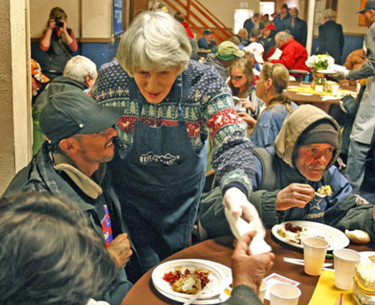So much of the human story is filled with broken dreams. We have been created in the image of God. We can fashion marvelous possibilities for success, fame and pleasure, and we spend much of our time and effort trying to make at least some of these dreams come true. But along the way, we will always encounter people or circumstances that will shatter those dreams. Along the way we will always question what it is that we need to do to find our ultimate happiness.

This is the type of question asked of Jesus by the scribe in today's Gospel. What is the most important thing that I have to do in order to serve God? What is the first and greatest commandment? What is the one thing that I should do so that I don't have to worry about missing any of the other commandments? How can I get the most reward for the minimum of service to God?
Jesus responds to these questions with the Shema Israel, the ancient prayer of the Book of Deuteronomy that the Jewish people said every morning and every evening, the prayer that they kept in a packet at their doors so they could take it with them wherever they went: "Shema Israel, Hear O Israel, The Lord our God is Lord Alone! You shall love the Lord with your whole heart, whole mind and whole soul." That is the greatest commandment, Jesus says. And to that He adds a small verse from the Book of Leviticus: "'and you shall love your neighbor as yourself.' There is no other commandment greater than these."
Jesus' simple statements embrace everything we need to do to serve God. And yet, they demand a radical change in our lives and a radical transformation in our whole perception of religion. This transformation is so profound that it flows from us towards God and is expressed in love of neighbor. Every activity of our lives is included in these two commandments. And these two commandments point to accountability and stewardship.
In today’s society, accountability is a seldom-championed virtue. It seems to me that the root cause of most of the disorders in our society today stems from a lack of accountability. Somehow, there is a growing sense among people that we are answerable to no one. What we have is our own, to use or abuse as we choose. People tend to act as though what they do with their gifts is nobody's business but their own.
Jesus teaches otherwise. He teaches stewardship at every turn. He urges us to be concerned for the needs of others. He demands that we use God's gifts wisely and well. At the heart of our faith is a Spirit leading us to acknowledge that it is God's love and goodness that provides so abundantly for all of our needs. And at the center of our love for God must be a desire to share what we have with our brothers and sisters. True stewardship reveals the exquisite, personal, compassionate love of God for all of His creation.
When we love our neighbor as ourselves, we are loving those who themselves are unique reflections of the presence of God. We cannot love God and be indifferent to others. We have to learn how to love those who are not perfect. We have to learn how to love those who are outcasts. We have to learn how to love those by whom we might feel very naturally repelled. What Jesus says in the Gospel is that there is no way we can claim to love God without being accountable to love and serve others.
Jesus was a person of promise and this promise continually invites us to re-imagine how the whole process works. Our task is to enter into this process over and over again so that we will always see something we have never seen before. It’s all about listening to a story with open ears and a fresh heart. We are to love totally because that is what God has first done for us - loved us with full "heart, soul and strength." But above all, we need to allow ourselves to be loved by God. If we can do this then loving our neighbor might just become a little easier.




